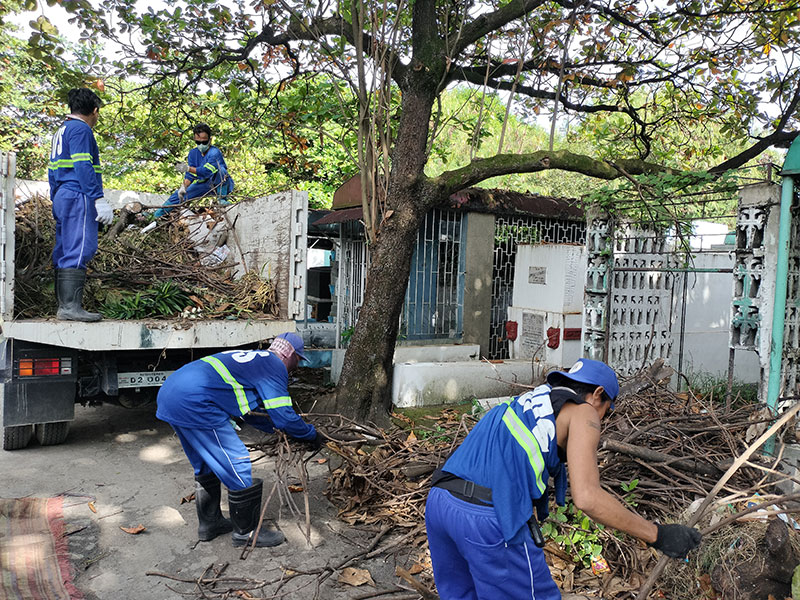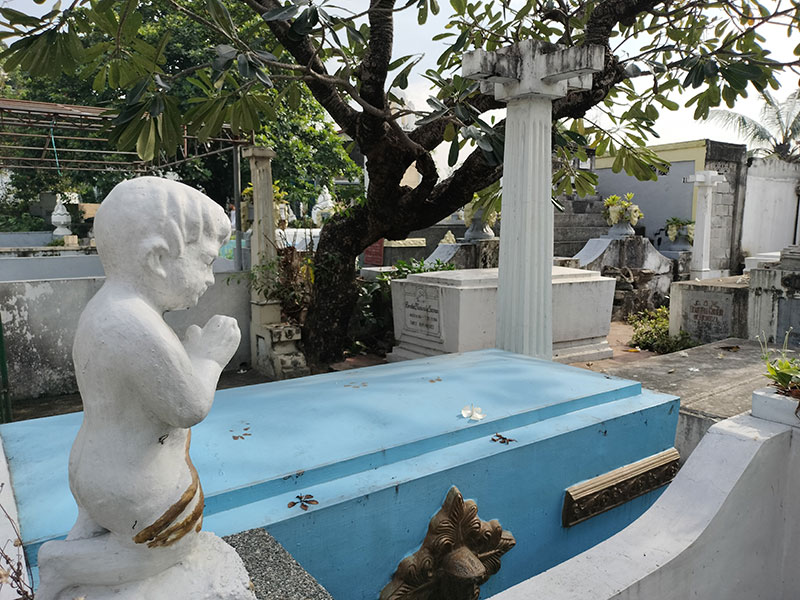Groups advocating for a zero waste and toxics-free society are reminding the public to conduct the pre-Undas clean-up of tombs in a manner that will not lead to environmental pollution, which can make people sick.
In a joint press release, the EcoWaste Coalition and Mother Earth Foundation enjoined the public to abide by the provisions of Republic Act 9003 and corresponding local ordinances as tombs are cleaned and readied for the All Saints’ Day and All Souls’ Day on November 1 and 2.
Also known as the Ecological Solid Waste Management Act, RA 9003 emphasizes the importance of eco-friendly practices in managing solid waste that will contribute to solid waste prevention and volume reduction and ultimately to the protection of public health and the environment.
While the law espouses the segregation of discards at source, reuse, recycling, composting and other pro-environment practices, it prohibits anti-environment practices such as littering, open dumping, open burning and other polluting acts.
“Ensuring ecological waste management as prescribed by RA 9003 during the pre-Undas clean-up will prevent and reduce the generation of garbage and toxins, and make our visits to the tombs of our dearly departed more pleasant and safe,” said Sonia Mendoza, Chairman, Mother Earth Foundation.
“Garbage from the clean-up of tombs adds to the huge amounts of rubbish hauled from gravesites before and especially after Undas. Implementing RA 9003 will surely trim down the tons of mixed trash collected from cemeteries and buried somewhere else,” said Jove Benosa, Zero Waste Campaigner, EcoWaste Coalition.
The public are reminded to pay attention to the following do’s and don’ts in sprucing up the tombs of their deceased loved ones:
1. Do follow the cemetery’s policy against littering, open dumping and open burning (and cigarette smoking, too).
2. Don’t burn fallen leaves, branches, plastics and other discards to avoid generating health-damaging toxic fumes.
- Do separate biodegradables (grass cuttings, plant trimmings, etc.) from recyclables (cardboard, paper, tin cans, glass and plastic bottles, etc.) from the clean-up work.
- Don’t throw garbage in someone else’s tomb. Be guided by the golden rule: “Do unto others as you would have them do unto you.”
- Do bring the segregated discards to the cemetery’s Materials Recovery Facility or to the designated collection area.
- Don’t leave behind used bottles, cans and anything that can collect and hold water; dengue mosquitoes lay their eggs in water-filled containers.
- Do give the tombs of your loved ones a fresh coat of lead-safe paint; but refrain from dry sanding or scraping surfaces that might be coated with paints containing lead to avoid spreading lead-contaminated dust.
“Let’s make our beautiful Undas tradition of honoring the dead an ecological experience for all,” the groups concluded.






















